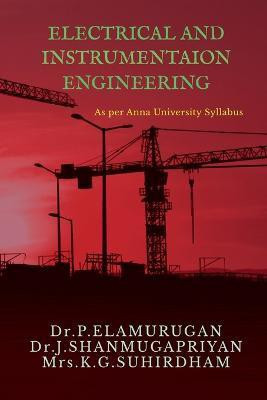Electrical and Instrumentation Engineering(English, Paperback, Elamurugan P.)
Quick Overview
Product Price Comparison
Electrical engineering (sometimes referred to as electrical and electronic engineering) is a professional engineering discipline that deals with the study and application of electricity, electronics and electromagnetism. The field first became an identifiable occupation in the late nineteenth century with the commercialization of the electric telegraph and electrical power supply. The field now covers a range of sub-disciplines including those that deal with power, optoelectronics, digital electronics, analog electronics, computer science, artificial intelligence, control systems, electronics, signal processing and telecommunications. Instrumentation engineering deals with the design of devices to measure physical quantities such as pressure, flow and temperature. The design of such instrumentation requires a good understanding of physics that often extends beyond electromagnetic theory. For example, radar guns use the Doppler effect to measure the speed of oncoming vehicles. Similarly, thermocouples use the Peltier-Seebeck effect to measure the temperature difference between two points. Electrical and Instrumentation engineers are responsible for designing, developing, installing, managing and maintaining equipment which is used to monitor and control engineering systems, machinery and processes


